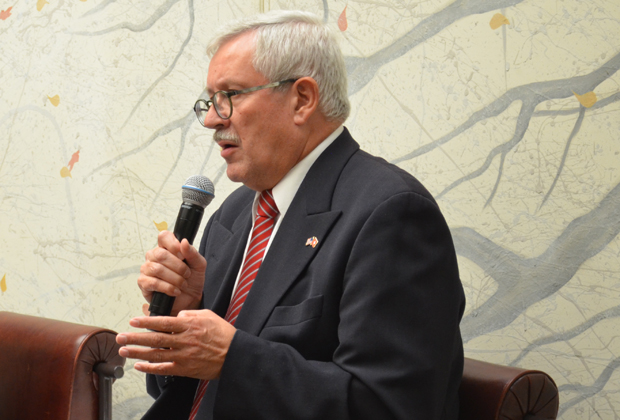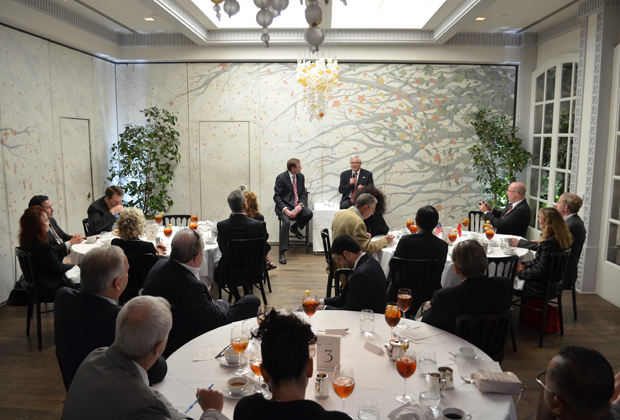 Swiss Ambassador to the US Martin Dahinden.
Swiss Ambassador to the US Martin Dahinden.
One million people of Swiss descent live in the US and nearly 100,000 live in California. Speaking to a Council roundtable lunch for Board and International Circle members on October 11th, the Swiss Ambassador to the United States, Dr. Martin Dahinden lauded Swiss-American relations and emphasized core connections in the areas of investment and trade.
Switzerland is visible internationally through its significant humanitarian role. The International Committee of the Red Cross was founded in Geneva over 155 years ago in 1863. Ambassador Dahinden explained that “Switzerland is a neutral country but that doesn’t mean we turn our backs on international relations” as the tradition of international aid resonates deeply within the country.
Ambassador Dahinden addressed Switzerland’s changing relationship with the EU due to Brexit. For Switzerland, these changes affect its relations with the European Union and “people are nervous because they have never had this sort of negotiation and don’t know if it’s even politically possible.” However, Ambassador Dahinden clarified that although there have been endless negotiations with the EU about bilateral agreements, “it’s up to the United Kingdom to come up with a solution.”
When asked what Switzerland could teach California about its robust direct democracy, Ambassador Dahinden candidly acknowledged he was not familiar enough with the system in California but noted that the Swiss system of direct democracy was “interestingly not in the constitution originally.” Yet he attested that from the very beginning the core of Swiss democracy has been people rising and putting something to a vote, pressuring the political system to compromise.
The conversation transitioned to the burgeoning trend of isolationism in light of growing nationalism. Ambassador Dahinden shared his personal insight and belief in the importance of multilateralism. He reflected that multilateralism is the result of a century long political development. Ambassador Dahinden recognized that one of the problems that has arisen with multilateralism is its failure to advance further and deliver results, yet he affirmed that “multilateralism should be maintained but there should also be a precedence to change things that do not work,” adding that “it absolutely makes sense to try to find solutions through negotiations.” The Ambassador reminded listeners that Americans should proudly remember that the United States was the architect of these multilateral institutions.

